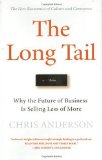Marketing and Public Relations – Nothing but lies?
Note: This past year has been one of reflection regarding family, friends and career. This will be one of many posts regarding various topics that I’ve mulled over from time to time through the year. Thank you in advance for your support and comments as I explore these topics.
My husband likes to say that marketing and public relations is about who lies the best. When he tells me this, I am completely offended. Yet, I have to admit, there is a kernel, and probably a big one at that, of truth in his perception.
Our job is to present our companies or clients in the best possible light. The question is how far are we willing to take it in order to land the big story or customer? At what point does “spinning” lead to outright lying?
The Ethical Quandary
We’ve all probably been in that situation – we’re marketing or publicizing a product /company that we know deep down can’t deliver on the promise. Or a competitor is blatantly lying and no one is catching on. It’s a very difficult position to be in, especially in today’s economic times when you don’t want to jeopardize your job security.
“The Truth Will Set You Free” – Gospel of John
It reminds me of the movie Liar Liar of Jim Carrey. His whole persona is about lying to win, until one day, he can only tell the truth. At first, this creates embarrassing situations for him. But the moral of the story was that by telling the truth, he was able to win a court case, and more importantly, his family back.
Or more recently, David Letterman’s predicament. He honestly, and painfully, revealed himself on his late night talk show. He didn’t downplay the situation or minimize his role. He took it head on. And in doing so, he defused the inevitable media storm, refocused it on the blackmailer and gained sympathy from most viewers.
“To thine own self be true” – William Shakespeare
Staying true to oneself is important. The decisions you make today do have an impact on you professionally and personally down the road. While it may not be easy, there will be times when you have to stand your ground.
In the end, who do you want staring back at you in the mirror?
3 Comments
Leave a comment
Additional comments powered byBackType
About
Favorite Service
Recent Comments
- on Going Virtual Isn’t Necessarily the Answer to Replacing Your Physical Events
- on Going Virtual Isn’t Necessarily the Answer to Replacing Your Physical Events
- on Going Virtual Isn’t Necessarily the Answer to Replacing Your Physical Events
- on Going Virtual Isn’t Necessarily the Answer to Replacing Your Physical Events
- on Going Virtual Isn’t Necessarily the Answer to Replacing Your Physical Events
Ads by Google
Favorite Books
Marketing Blogs
PR Blogs
- KD Paine's Measurement Blog
- Micro Persuasion
Virtual Events & Meetings Blogs
- Cisco Virtual Environments
- It's All Virtual
- The Webinar Blog
- Virtual Edge Institute

 Follow
Follow Cece Salomon-Lee is director of product marketing for Lanyon Solutions, Inc. and author of PR Meets Marketing, which explores the intersection of public relations, marketing, and social media.
Cece Salomon-Lee is director of product marketing for Lanyon Solutions, Inc. and author of PR Meets Marketing, which explores the intersection of public relations, marketing, and social media. 



@mgreshamuo thanks for the comments and it is sometimes interesting to hear why some firms will take the cases that you outlined.
@topher agreed and as a result, the “damage” was minimized from a PR perspective. On the homefront, that’s a different issue altogether. And yes, the word sorry is no longer what is used to be.
I completely agree that the success of David Letterman’s “apology” was that it came across as sincere and without attempt to shift responsibility. Hopefully, this episode has truly changed him… who knows…
The thing that continually frustrates me is that it has become a culture where apologies do not mean a true contrition regarding the action, but more of a “I’m so very sorry I got caught. I promise to be better at concealing next time.”
Sincere ethical behavior is sometimes expensive, costing a negative dip in image. PR is often too concerned with presence rather than doing what is deemed ethical. and that’s where the PR industry’s ethical dilemma begins.
There is no ethical way to help the tobacco industry increase market share for a product that kills its customers. There is no ethical way to protect polluters, sweatshops and makers of defective products while they continue to practice business as usual, and there is no ethical way to harass and censor journalists whose reporting threatens a client’s controversial product.
Many, if not all, of the major public relations firms, engage in these types of offensive practices. They don’t do it because they are evil people. They do it because their wealthy clients have problems, and cleaning up their image is often easier (and cheaper) than cleaning up their mess.
Ethics will always seem to take a back seat. I personally believe there is a boiling point in which a practitioner’s ethical limit will be reached. Most people have a conscious mind of what is grossly unethical. For example, people are going to use tobacco no matter what, one voice isn’t going to necessarily be heard; however, once their personal decisions become unethical, I feel most people have the strength and dignity to realize, and change.